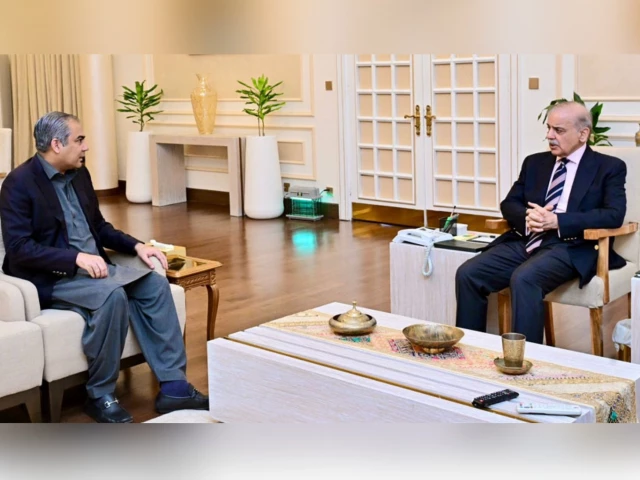Islamabad:
The Federal Government prohibited the land trip for pilgrims who go to Iraq for Arbaeen, citing security concerns in the restless Baluchistan province, Interior Minister Mohsin Naqvi confirmed on Sunday.
Naqvi said the decision had been made after consultations with the Ministry of Foreign Affairs, the Baluchistan government and security agencies, adding that pilgrims could travel to Iraq only by air.
Arbaeen, which marks the day 40 after Ashura, sees millions of pilgrims, including thousands of Pakistan, traveling to Karbala, Iraq, annually. Traditionally, many Pakistani pilgrims travel by road through Baluchistan and Iran.
However, due to the deterioration of the situation of the law and order in the province, including the increase in terrorist attacks of Indian power outfits, the Government considered the necessary measure for public security and national security.
“After broad consultations with the Ministry of Foreign Affairs, the Baluchistan government and security agencies, it has been decided that Zaireen will not be allowed to travel to Iraq and go by road for Arbaeen this year,” Naqvi published in X.
“Zaireen, however, can travel by air. Prime Minister Mian Muhammad Shehbaz Sharif has ordered the authorities to organize maximum flights to facilitate their pilgrimage in the next few days,” he added. “This difficult decision was made in the interest of public safety and national security.”
In the direction of Prime Minister Shehbaz Sharif for organizing flights to facilitate pilgrims, the International Pakistan (PIA) airlines announced four special flights from Karachi between August 8 and 11, with Najaf Return Flights from Najaf scheduled from August 18 to 21.
According to a PIA spokesman, the rate was set at RS212,000 per person, and the sale of tickets had begun. He added that more flights could be scheduled if necessary. The authorities said that passengers traveling by air individually must be sponsored by local people, otherwise they cannot enter Iraq.
Meanwhile, private airlines have considerably increased rates, with tickets that now vary between RS300,000 and RS350,000. Tourist operators estimate the group’s travel expenses to $ 1,400 per pilgrim, compared to only $ 550 for land trip.
This has increased fears that tens of thousands of low -income pilgrims can be unable to pay the trip. Salars, leaders of the pilgrim group, argue that the prohibition that has been announced only 15 days before Arbaeen has caused significant financial losses.
They said that many people had already made advance payments for visas, certifications of vehicles and hotels reserves. They demanded that the government allow supervised bus convoys under the protection of security agencies or provide alternative transport agreements.
“This loss does not support the rich but for the poor,” said a pilgrimage organizer to Express PAkGazette on anonymously. He questioned why the ban was not announced previously during a recent trilateral meeting between Pakistan, Iran and Iraq, where travel restrictions were discussed.
During a meeting with Prime Minister Shehbaz Sharif, Naqvi informed him about the security situation of Baluchistan and the new pilgrim policy. The prime minister directed the beginning of the Gwadar Safe City project to improve security in the region.
NAQVI emphasized the need for better pilgrim management. As of next year, he said, the pilgrims will only be allowed to travel under officially registered group organizers, with special visas issued by the necessary embassy for independent trips. This system aims to stop illegal trips and higher problems.
Meanwhile, Naqvi also visited Quetta and Azad Kashmir. In Quetta, he paid tribute to martyred soldiers at the headquarters of the Frontier’s body, praising his sacrifices to maintain peace. Later, in Muzaffrabad, he met the family of Major Rabbi Nawaz, a martyred officer, and offered condolences.




